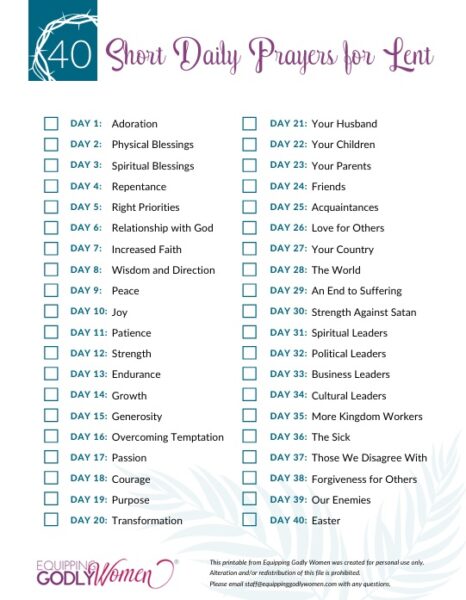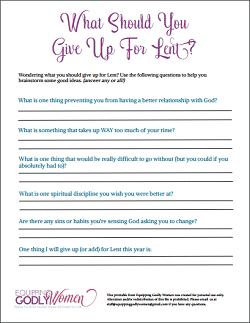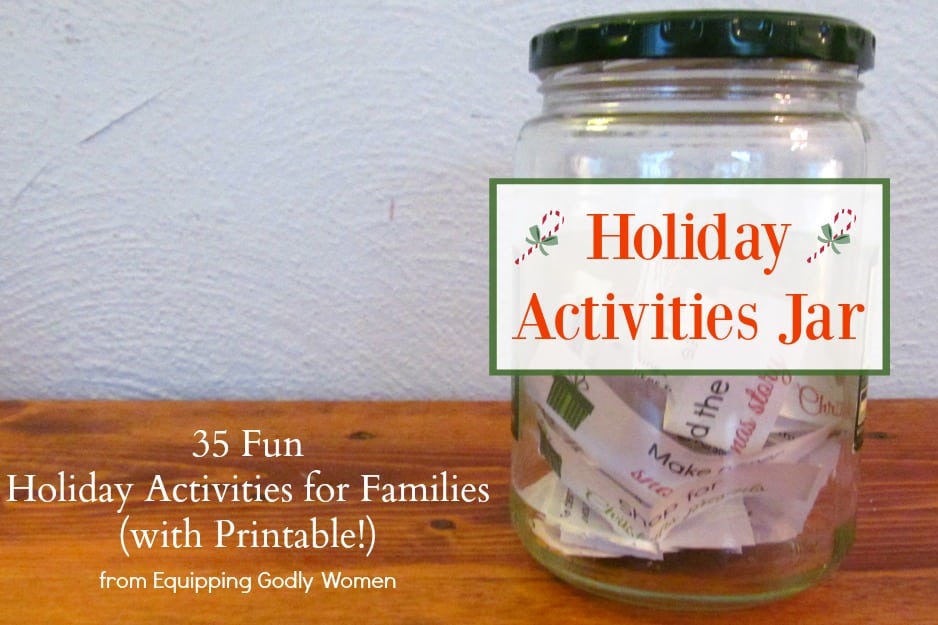Is Lent Biblical? Where is Lent in the Bible?

Growing up in a Protestant (Baptist) household, our family never observed Lent.
I don’t remember anyone being specifically opposed to it. It just wasn’t something we did.
So when I married into a Catholic family – who does participate in Lent – I had a lot of learning to do!
Over the last several years, I’ve done a TON of research into what Catholics and Protestants believe and why.
And I’ve put together several helpful guides, such as What Catholics Can Eat During Lent (PDF) or these 50+ Lent Recipes You’ll Love to Make — because these were resources *I* needed when I was learning!
Thankfully, as I’ve shared these posts, most people have been super supportive and genuinely interested in learning more about what everyone believes and why, and that’s great!
Occasionally, however, I’ll get concerned emails asking questions such as, “Where is Lent in the Bible?” “Is Lent Biblical?” or “What does the Bible say about Lent?” from well-meaning Christians who might have learned some Catholic myths and misconceptions along the way. And that’s great too!
Honestly, I think it’s wonderful when Christians ask genuine questions that foster real, open discussion, rather than simply automatically shutting people out who think differently than they do. I love that!
So, with that being said, if you’re wondering, “Is Lent Biblical?” or “Where is Lent in the Bible?” this article is for you.
Here’s what you’ll learn:
What is Lent?
Lent is a 40-day (six-week) period of spiritual preparation leading up to Easter Sunday in which many Christians reflect on Christ’s death and resurrection.
Not all Christian denominations celebrate Lent, but many do. Lent definitely isn’t just for Catholics!
Christians who do participate in Lent typically do so in a number of different ways. While Catholics will typically participate by getting ashes on their foreheads and following special Lenten fasting rules, everyone can participate by choosing something to give up for Lent, going to church, or by committing to praying Lenten prayers for spiritual renewal.
It’s kind of like Christmas… While there are several traditions most families have in common, everyone prepares for Jesus’s coming in their own special way. Just like Advent helps Christians prepare their hearts to celebrate Christ’s birth, Lent helps Christians prepare their hearts to celebrate Christ’s death and resurrection.
Is Lent Catholic or Christian (Protestant)?
Both Catholic Christians and Protestant Christians celebrate Lent, though Lent is more commonly observed among Catholics than Protestants.
Catholic Christians commonly attend Ash Wednesday church services, where they receive ashes on their foreheads. They may choose to voluntarily give something up for Lent, but they are required to follow these Lenten fasting rules.
Protestant Christians may attend an Ash Wednesday service, where they receive ashes on their foreheads. They may voluntarily give something up for Lent. But they are NOT required to (and typically don’t) follow any Lenten fasting rules. Lent is completely optional for Protestants.
Take the 40-Day Lent Prayer Challenge!

Ready to get more intentional with your prayers — without getting distracted by your phone or computer?
Grab this Lent Prayers printable PDF and put it somewhere you’ll see it often to remind you to take time for uninterrupted prayer.
This handy cheat sheet contains all 40 Christian prayers for Lent plus a handy checklist. It’s yours free. Where should I sent it?
When is Lent? (When Does Lent Begin and End?)
This year, Lent begins on Ash Wednesday, March 5, 2025. In the Roman Catholic Church, Lent ends on the evening of Holy Thursday, April 17, 2025. In many Protestant denominations, Lent ends on Easter Sunday morning.
The exact dates of Lent vary every year, but the Lenten season always starts on the Wednesday six and a half weeks before Easter Sunday (known as Ash Wednesday).
- Lent is 46 days if: You count from Ash Wednesday until Easter Sunday – not counting Easter.
- Lent is 40 days if: You count from Ash Wednesday to Easter Sunday – not counting any Sundays. (The Roman Catholic church considers Sundays as a day of celebration, not a day of penance.)
Where is Lent in the Bible?
Lent is never mentioned in the Bible. Instead, Lent is a popular spiritual practice that has grown over time since the early Church began observing it in (or before) the second century.
Is Lent Biblical?
While Lent isn’t specifically commanded in the Bible, most Lenten practices do align closely with Scripture.
It’s important to remember: There’s a big difference between “not in the Bible” and “against the Bible.”
Just because something isn’t included in the Bible doesn’t automatically make it “bad,” and just because something is included in the Bible doesn’t automatically make it “good.”
For example, church potlucks, Sunday School, Christmas plays, weekly bulletins, church websites, the Sinner’s Prayer, and baby dedications are not in the Bible. Murder and adultery, on the other hand, are in the Bible.
Every church (and every family) has their own traditions and practices that are meaningful to them, and that’s a great thing!
See also: Who Has the Ultimate Authority? A Biblical Look at Sola Scriptura.
What is the History of Lent?
According to ChristianityToday.com, Lent is one of the oldest observances in the Christian calendar. In fact, Christians were participating in some form of Lent before the church formally decided which books would make it in the Bible.
“Early church father Irenaus of Lyons (c.130-c.200) wrote of such a season in the earliest days of the church, but back then it lasted only two or three days, not the 40 observed today.”
After Christianity became legalized in 313 A.D. and the Council of Nicea took place in 325 A.D., the Church began to formalize how Lent would be observed.
According to this article on the history of Lent:
“Historians generally agree that the 40-day period before Easter, known as Lent, emerged shortly following the Council of Nicea in 325 AD. Earliest observances of Lent seem to have focused particularly on the practice of fasting. Council records suggest that the fast applied at first mainly to new converts as a period of repentance and reflection before baptism at Easter. In any case, Lent quickly became a general practice churchwide. The actual 40-day period varied region-to-region, even church-to-church; some including weekends, some not; some fasting Sundays, others not. But in every case, the fast was strict: one meal a day after 3 PM with no meat, fish, or dairy. It was Pope Gregory I (590 – 604) who finally regularized the period of the fast churchwide, to begin on a Wednesday 46 days before Easter with a ceremony of ash, and not to include Sundays, which were perennial days of celebration.”
While Lenten practices remained largely unchanged for centuries, eventually, the Catholic Church did begin to relax its standards to our current guidelines, which are much easier to keep.
According to the same source:
“By the 1400s, Christians had begun eating the one meal earlier in the day, and later began to add a smaller meal to keep up their strength for work. Eventually, the one-meal restriction was lifted altogether… [T]he number of obligatory fasting days decreased incrementally from six days a week to three, and then eventually, to just two in the whole season of Lent.”
Meanwhile, various Protestant denominations developed their own sets of rules and guidelines over time for how the Lenten season would or would not be celebrated.
This is why Catholics celebrate a specific 40-day period with precise Lent rules and guidelines (the Catholic church has been around for a long time), while Protestant churches vary widely in how they participate, if they participate at all.
What Does the Bible Say About Lent?
While Lent isn’t mentioned in the Bible specifically, all of the most popular individual Lenten traditions come straight from Scripture.
- Almsgiving (Giving to the Poor): Leviticus 25:35, Proverbs 19:17, Matthew 19:21, Luke 6:38, Luke 11:41, Acts 10:2, Hebrews 13:16, 2 Corinthians 9:5-7, 1 Timothy 6:18, 1 John 3:17
- Ashes: Leviticus 6:11, Numbers 4:13, Numbers 19:17, Esther 4:3, Job 42:6, Ecclesiastes 3:20, Isaiah 58:5, Daniel 9:3, Hebrews 9:13
- Attending Church: Psalm 150:1, Acts 2:42, Hebrews 10:24-25
- Fasting: Exodus 34:28, Ezra 8:23, Psalm 69:10, Joel 1:14, Joel 2:12, Nehemiah 1:4, Matthew 6:16-18
- The Number 40: Genesis 7:4, Exodus 24:18, Jonah 3:4, Matthew 4:1-2
- Prayer: Jeremiah 29:12, Jeremiah 33:3, Matthew 6:6-7, Mark 11:24, Philippians 4:6, I Thessalonians 5:16-18, James 5:16
- Repentance: Proverbs 28:13, Matthew 3:2, Matthew 4:17, Luke 13:3, Luke 15:7, Luke 17:3-4, Acts 3:19, Acts 8:22, 2 Peter 3:9, Revelation 2:5
- Scripture Reading: Joshua 1:8, Psalm 119:11, Psalm 119:105, Romans 15:4, Colossians 3:16, 1 Timothy 4:13, 2 Timothy 3:16, Hebrews 4:12
- Self-Denial (Abstinence): Psalm 119:9, Proverbs 25:28, Matthew 16:24, 1 Corinthians 9:27, 1 Corinthians 10:13, Galatians 5:24-25, Colossians 3:5, Hebrews 13:5, 1 Peter 2:11, 1 Peter 5:8
- Self-Examination: Psalm 139:23-24, 1 Corinthians 11:28, 2 Corinthians 13:5
- Self-Sacrifice: Matthew 10:39, Romans 12:1, Hebrews 13:16
While the Bible doesn’t command people to observe Lent, Lent is a great way to help people follow the Bible’s commands.
In fact, many people who voluntarily choose to give something up for Lent or to start a new spiritual discipline (such as praying daily Lenten prayers or studying the Bible) do so in order to grow spiritually during the Lenten season.
So while Lent itself isn’t in the Bible, most of the ways Catholics and Protestants celebrate Lent are in the Bible.
But What About Catholic Lent? Is Catholic Lent Biblical?
The Roman Catholic church does require its members to follow certain guidelines, which are not expressly commanded in Scripture. (Lent is completely optional for Protestants.) However, just because something isn’t mentioned in the Bible doesn’t mean it’s against the Bible.
For a great explanation of why Catholics participate in Lent, check out the video, “Where is Lent in the Bible” by Father Mike at Ascension Presents.
Father Mike is a Catholic priest (with an active YouTube presence) who always does such a great job of explaining what Catholics believe and why in a way that’s fair, welcoming, and kind.
He doesn’t use a lot of Catholic jargon that’s hard to understand, and he’s never rude, annoying or preachy. You can tell he’s genuinely excited and passionate about being Catholic (which is great!), but his messages are still very accessible and approachable for curious non-Catholics (like me!) as well.
So if you’ve been wondering, “Is Ash Wednesday Biblical?” or “Why do Catholics celebrate Lent?” this video will help.
What Does the Bible Say About Lent in 1 Timothy 4:3-4?
In the interest of full disclosure, as I was researching this question of “Where is Lent in the Bible?” I did come across one passage that initially threw me for a loop:
“The Spirit clearly says that in later times some will abandon the faith and follow deceiving spirits and things taught by demons. Such teachings come through hypocritical liars, whose consciences have been seared as with a hot iron. They forbid people to marry and order them to abstain from certain foods, which God created to be received with thanksgiving by those who believe and who know the truth. For everything God created is good, and nothing is to be rejected if it is received with thanksgiving.” —1 Timothy 4:1-4
This passage really made me stop and think, because it seems very anti-Lent on the initial reading. But a little understanding of the history of the Church helps clear it up:
So first, it’s important to understand that when Paul wrote his letter to Timothy, he was writing to a specific person in a specific situation at a specific time.
(In other words, while we can read and benefit greatly from Paul’s letter today, his words weren’t specifically written TO us in the exact situations we face today.)
At that time, many of the early Christians were Jewish people who were used to following a TON of Jewish law. In fact, pre-Christ, their entire salvation rested on their ability to follow ALLLL these Old Testament rules to the letter. If they messed up, it meant being cut off from God and their people.
As a result, the Jewish people of this time took the laws VERY seriously–and for good reason!
However, when Christ came and replaced the Old Testament legal system with the New Testament system of grace, many of the early Christians were still understandably very confused about which rules they still had to follow and which rules they could safely disregard.
You can see this elsewhere in Scripture, such as in Galatians 5:12 (Paul arguing that Christians don’t have to be circumcised to be saved) and 1 Corinthians 8 (Paul arguing that it’s okay to eat meat sacrificed to idols).
Well, in this 1 Timothy passage, apparently there was a minority group called the “Encratites” who were trying to forbid Christians from ever marrying or eating meat.
They thought meat and marriage were morally wrong for all Christians everywhere, and they were preaching this heresy widely enough that it was causing problems. (You can read more about the Encratites here)
So, when Paul wrote 1 Timothy 4:3-4, he wasn’t condemning the practice of temporarily fasting from certain foods as a helpful spiritual discipline (which is encouraged elsewhere in Scripture). He was speaking in opposition to the ideas of one specific group of people whose incorrect teachings were confusing the beliefs of a young and impressionable church.
To be clear, Catholics today do not practice Lent or abstain from meat in order to earn salvation. They do it simply as a helpful spiritual discipline to focus their hearts and minds on Jesus in the 6 weeks leading up to the celebration of Jesus’s death and resurrection.
What Should You Give Up for Lent? (Let’s Find Out!)

Instead of picking something random from a list, why not choose the option that will give you the biggest impact?
Take the “What Should You Give Up for Lent?” self-assessment and discover your biggest opportunities for growth this year.
It’s 100% free. Just let me know where to send it!
Are you participating in Lent this year? Are there any other Scripture verses related to Lent in the Bible that I should know about? Feel free to share below!
![What to Give Up for Lent 2021: Get the 50 [Best] Lent Ideas!](https://equippinggodlywomen.com/wp-content/uploads/2019/01/What-Should-I-Give-Up-for-Lent-blog-600x375.jpg)

![What to Give Up for Lent 2021: Get the 50 [Best] Lent Ideas!](https://equippinggodlywomen.com/wp-content/uploads/2016/02/What-Can-You-Eat-During-Lent-blog-600x375.jpg)








My family follows an old Protestant tradition of taking on something extra for Lent, rather than giving something up. This year, one of the things we plan to do is a special Lenten class at our church.
How fun! What is the class on?
You have to be careful with participating in extra-Biblical rituals, because that’s what they are: rituals. Lent isn’t in the Bible because it isn’t commanded by God. If it’s something you want to do because you feel closer to God, okay. But just realize that it is a man-made ritual made up of arbitrary rules to follow. Jesus talks about fasting in Matthew 6:16-18 telling us to not make it obvious to others. Paul’s point is that we don’t have to abstain if we believe & know the truth. No, this doesn’t mean we can’t abstain, but why would you? The Bible is full of things we should do, which basically just boils down to love God & love others as yourself. How would Lent align with the greatest commandments? It seems like Lent is more of a “me” thing than a God thing. I’m not saying Lent is harmful in & of itself, but we are not to add or take away from the Bible, so be just careful with what you allow in your life that isn’t Biblical.
You’re right. It is an extra man-made tradition that’s not in the Bible. But so are church potlucks, baby showers, Easter egg hunts, Bible reading plans, New Year’s Resolutions, altar calls, “turn and greet your neighbor,” and a TON of other traditions every single church has — even yours! 🙂
Well, the Bible does say that we are to gather together to break bread (potlucks would fall under this), to be of one mind/unified…how can we if we don’t know one another, etc. But none of these things are ever considered mandatory. Like I said, I’m not saying it’s right or wrong, just unnecessary. If you choose to do it, fine; if not, also fine. I was reading in Colossians today & felt chapter 2:20-23 could be applied in this situation. Interesting how the Word is revealed to us as we need it!
Yeah, that’s something I’m still questioning too.
I, also, agree that Lent, along with so many other Catholic traditions seem to be directly addressed in the Bible as things that do not truly serve the Lord or further His kingdom (praying to a man made statue of Mary is probably the biggest of all) Lent, to 99% of the people I’ve ever seen practice it, seems more like a self improvement attempt and not a spiritual growth journey. I appreciate your interest in understanding two different denominations of Christianity, but it is worrisome that some may be taking spiritual advice from your posts if you are still questioning parts of the Bible. I encourage you to continue pursuing God, where’ve He leads you, but I caution you to attempt teaching or guiding others on their journey if you are still questioning God’s word. Blessings!
I have never though of Lent in this way before. My grandmother was Catholic but we were raised Protestant. I like the idea of using the time as self reflection and being able to just draw closer to God during this time. I also like the discipline that it can bring to me as a believer to really get into God’s word and let Him feed me spiritually. I have never participated in Lent but I may have a discussion with my husband and see if this is something we can do to go even deeper in our relationship with God as we have struggled for a long time.
Thank you for this email/ post, I found it really helpful. I was confirmed into Church of England but converted to Catholicism just over 4 years ago. But have in the last few weeks, gone back to the Anglican Church as just feel more at home there.
( But I have absolutely NO criticisms of the Catholic Church at all) So as a fellow in the middle of the road Christian! will be following Lent this year just to make myself be a bit more reflective over next few weeks.
I have wanted to do Lent, but still am not sure how to go about it. I grew up Catholic but didn’t agree on a few things when I was a teenager, so went more protestant, though I feel in each there were some things that were nice and other things that I didn’t feel as necessary. So I remember Ash Wednesday and giving up chocolate a few years. I have a lot of neat memories, and not so nice ones. I do believe it is an individual walk and I like how you did this article. Thank you for sharing.:)
Brittany, I would like to strongly encourage you to study this more deeply.
Your statements of “I want to research what Catholics believe and why because I want my beliefs to be based on solid, Biblical truth, not just the myths and misconceptions I’ve unknowingly picked up over the years.”
and
“This isn’t necessarily a problem, however. Many traditions Christians love today weren’t around in Biblical times, including opening Christmas presents, hanging Christmas stockings, or sharing the holiday Ham at Easter.
In fact, did you know that the Bible never mentions the Trinity or the sinner’s prayer either??”
are directly opposed to one another.
It is not solid Biblical truth to justify anything of men by the thinkings of men.
Nadab and Abihu chose to use a fire God had neither commanded nor authorized – He was silent about it specifically. But Leviticus 10:1-3 shows God striking them dead for using it. God called the fire they used profane because it wasn’t the fire He had commanded. It was different. It was “strange fire”.
(Please forgive my all caps – they are not yelling, just emphasis).
God’s word IS TRUTH (Jn. 17:17).
We care to study so that we can RIGHTLY divide the word of TRUTH (2 Tim. 2:15)
ALL Scripture is profitable for doctrine, for reproof, for instruction in righteousness that we may be perfect and THOROUGHLY furnished unto good works (2 Tim. 3:16-17)
God has given us EVERYTHING that pertains to LIFE and GODLINESS (2 Peter 1:3)
If anyone preaches anything different than that taught by the apostles it is to be rejected as being accursed (Gal. 1:7-9).
The full context of 1 Timothy 4 begins with 1 Tim. 3:14. It includes 1 Timothy 4:1, which reads, “But the Spirit explicitly says that in LATER times some will fall away from the faith, paying attention to deceitful spirits and doctrines of demons,” and the verses you noted fall into what will happen in the future – not what was happening with Timothy right then. And verse 6 says that Timothy is to point these things out to the brethren. 1 Timothy and 2 Timothy are Paul training Timothy how to teach each congregation what was necessary. And that teaching applies to us today because of 2 Tim. 3:16-17 and Gal. 1:7-9.
Matthew 15:9 – a warning is sounded to the hypocrisy of the Jews, “but in vain do they worship Me, Teaching as doctrines the precepts of men.” God warned about it in Isaiah and Jesus repeated in Matthew and Mark.
Dig deeper. Accept nothing less than God’s truth. Therein lies the answer that can be given when you meet Him on judgment day. Pointing to what other men have done separately from God’s word is not a place of safety and hope.
Keep studying and keep sharing. Truth is there.
Just for your further study: The trinity is found in Matthew 28:19 – “baptizing them in the name of the Father, and of the Son, and of the Holy Ghost.” 1 Cor. 12:4-6 refers to all three as does 2 Cor. 13:14, Eph. 2:17-18, and 1 Jn. 5:7.
I totally get what you are saying, and am not offended by your comment at all 🙂
My point is simply: Just because things aren’t mentioned in the Bible doesn’t make them automatically wrong. If you argue “Well, Lent isn’t in the Bible so we shouldn’t celebrate it…,” then you’d have to throw out a LOT of other practices that Christians everywhere do without question as well because they aren’t in the Bible either.
And yet, you don’t see people getting all upset about the sinner’s prayer (for example) the way that people (in general) get upset about Lent.
Your way of thinking makes accepting all of the man made false teachings of the Catholic Church more acceptable too, just as the leaders had planned. 🙁
Beth is quite right. There is a difference between potlucks and church teaching. Based on what I read in this thread, there is a great deal more that everyone needs to understand about the Romanist/papal religion.
Yes exactly! the false man-made practices need to be identified as such (and not necessarily thrown out but most certainly identified as non-biblical) – this is how people get so deceived into man-made law instead of Christ’s….especially those not reading their bible daily or in a daily personal relationship with God, Yeshua and the HS. It’s great to celebrate Lent – JC said imitate me, a lot of which Lent is – but let people know it’s of man not Christ – 200 years CE.
Thank you so much for sharing your research! I have family who are both Protestant and Catholic. I believe that as long as we follow Christ, we are part of God’s family and His church regardless of our denomination. I think any time we can prepare our hearts for the remembrance and celebration of what Christ has done and is doing in and through our lives is always good! Again, thank you!
I was fascinated by this article and I felt it gave me a new way of seeing Lent.
If you don’t mind, I’d like to share what I’ve been taught about Lent. Please note: I am no scholar nor do I believe my understanding is better than yours or anyone else’s. I mean no disrespect. This is just what I was taught.
Along with Christ’s crucifixion and resurrection, we also observe his 40 days in the desert (Matthew 4:1-11). When Jesus is led by the holy spirit and tempted by the devil. Jesus had fasted for those 40 days. During Lent we face temotaions, as Christ did in the wilderness and we follow the example he set by turning to God and His word in those difficult times. Relying on His promises and not the temporary satisfaction this world (or the devil) will offer.
As we participate in Lent, we remember that we cannot grow closer in our relationship with God when we overindulge or become distracted by worldly comforts. I feel Lent reminds of me the joys which come from God and learning to replace bad habits with something that will help me grow closer to Him.
Obviously I see Lent a little differently, but I hope this gives you a little more insight.
Thank you and God bless!
Thank you so much for sharing this with me. Last year I had a burden to participate in the Lent season for the first time. I didn’t do so hot, but I got a lot out of it. I plan to observe it again this year. I was raised Baptist but later in life converted to Holiness, pray Catholic prayers and study why Jews do the things they do. I pretty much go where the Spirit leads me because I have been called to intercessory prayer and I’ve learned so much from various observances. Thank you again for helping me out and you’re doing an amazing job! God bless you, Kind Lady.
In your search, don’t stop at Catholicism, continue back to the first Christian faith that still continues today: Eastern Orthodoxy, if you want to find the Truth. I was raised Methodist, then moved to Episcopalian, then Catholicism, and finally reached my destination: Antiochian Orthodox Church, here in the United States. It has so much depth, and truth, that now, after almost twenty years of being a practicing, faithful Orthodox Christian, I know that there is so much more to learn. May God bless you on your quest.
Yes, I would love to learn more about what Orthodox Christians believe as well! Just haven’t gotten that far yet 🙂
Lent is so much more than mere self-denial. The best book I could suggest for reading about Lent is Fr. Alexander Schmemann’s book, Great Lent. May you have a blessed journey.
I second that recommendation. It is a fantastic book, very readable, and gives an excellent explanation of Great Lent from an Orthodox perspective. However, it is certainly beneficial for anyone who is interested in the beauty, depth, and meaning of Lent.